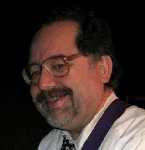Before I could finish the article by Seidman, The Idea of a Science of Society: The Enlightenment and Auguste Comte, it appeared to me that the author had not followed recent developments in the History of Science. When viewing the history of science and religion, there are two basic hypotheses. The first was promoted by Draper-White and is termed the Conflict or Warfare thesis, and sometimes referred to as Protestant-Whig warfare/conflict thesis. The other model, and the dominant paradigm in current history of science, is the complexity thesis. It is clear that Seidman either does not realize the current position of the history of science or else deliberately chooses an failing model on which to frame his argument. Let me give some examples.
It is now considered that Galileo was not censored for his scientific views, but for his lack of protocol. Copernicus' work had been in publication for sometime before it was banned as a result of Galileo's politics. The story is long and involved, but two examples will help clarify matters. First of all, both Copernicus and Galileo challenged a Ptolemaic model of the universe, not a Christian one. This Ptolemaic model was based on Aristotle, and it was not just astronomy, but the Protestant reformation that rejected Aristotelian philosophy which had been championed by Thomas Aquinas and the scholastics. It is clear that neither Copernicus, Galileo, Kepler, nor Newton were nothing but dedicated Christians. There was no such a thing as the institution of science vs. the church. All of the discussion took place within the church, within Christianity. There is even an argument among experts of the history of Science (Lindberg, Brooke, Huff) that the scientific revolution could have only taken place within Christendom, seeing that both the Muslim world and the Chinese had dropped the ball because of their overly ridged social institutions (no safe haven, no rule of reason or logic, and no corporate law).
It is now considered that Galileo was not censored for his scientific views, but for his lack of protocol. Copernicus' work had been in publication for sometime before it was banned as a result of Galileo's politics. The story is long and involved, but two examples will help clarify matters. First of all, both Copernicus and Galileo challenged a Ptolemaic model of the universe, not a Christian one. This Ptolemaic model was based on Aristotle, and it was not just astronomy, but the Protestant reformation that rejected Aristotelian philosophy which had been championed by Thomas Aquinas and the scholastics. It is clear that neither Copernicus, Galileo, Kepler, nor Newton were nothing but dedicated Christians. There was no such a thing as the institution of science vs. the church. All of the discussion took place within the church, within Christianity. There is even an argument among experts of the history of Science (Lindberg, Brooke, Huff) that the scientific revolution could have only taken place within Christendom, seeing that both the Muslim world and the Chinese had dropped the ball because of their overly ridged social institutions (no safe haven, no rule of reason or logic, and no corporate law).
Secondly, no matter how true the hypothesis, Galileo could not prove heliocentrism in his day and actually offered one example (the tides) that we reject today. What was needed was the proof from parallax, which would have to wait a century. So even if there had been positivists in Galileo's day, they would have had to reject his argument as lacking empirical proof. Aristotle ruled the day. This had nothing to do with religion, since Augustine (5th century) had already promoted the idea of accommodation, that the biblical authors wrote as phenomena appeared to them in day to day life, not as scientists or those of later generations.
Therefore, since Seidman chose the now defunct Conflict thesis, pages 11-16 are replete with error and exaggeration as to the historical nature of the rise of modern science. I can see no other reason for Seidman taking this route except prejudice, since it is hard for me to believe that he is actually ignorant.
Dave
Therefore, since Seidman chose the now defunct Conflict thesis, pages 11-16 are replete with error and exaggeration as to the historical nature of the rise of modern science. I can see no other reason for Seidman taking this route except prejudice, since it is hard for me to believe that he is actually ignorant.
Dave

1 comment:
So ...where do you find yourself? danielle
Post a Comment